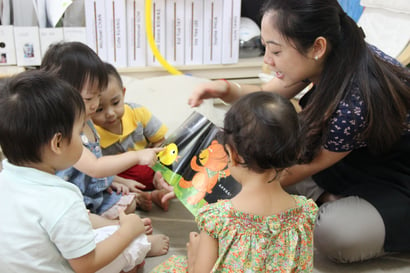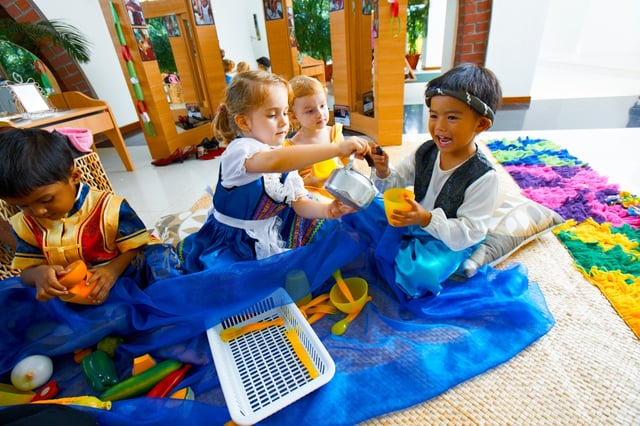Reading to young children is not the sole responsibility of teachers. As children’s first teachers, parents play a significant role in nurturing their children’s love for reading.
Here are 4 helpful tips for reading aloud to your child.
1. Carefully select Appropriate Books
Choose books that include rich language, and books that facilitate discussion and complex interpretations. It is recommended for you to read the selected books beforehand to ensure that they are appropriate to your child’s developmental level.
Respect your child’s requests for a particular book or for refusing an invitation to read a particular book. It is perfectly fine to directly ask your child for his or her preferences. When children are interested in what they are hearing and seeing, they reap greater benefits and have fun in the process!
2. Ask Relevant Questions
Look out for opportunities to ask questions on the major story ideas and encourage discussions that are reflective in nature.
|
Types of Questions to Ask during Read-Alouds
Based on information in V. Bennett-Armistead, N.K. Duke, & A.M. Moses, Literacy and the youngest learners. Best practices for educators of children from birth to 5 (New York: Scholastic, 2005). |
||||||||||||||||
|
You may also be interested in: Strategies to support your children in asking questions |
3. Read and Re-read the Same Books
Although repetition of the same story may sound mundane for parents, it is found that with multiple exposures to a story (at least three readings), children’s retelling becomes increasingly rich as they integrate what they know about the world, the language of the book and the author’s message (Eller et al., 1988).
Research has found that when children re-read short selections, their confidence, fluency, and comprehension are significantly enhanced (Samuels 1979; Moyer 1982).
Young children may not seem to understand every new word, however, reading aloud the same book several times will help children deepen their understanding of the words used in context of the book, and allow children to make sense of the word the next time it is encountered.

4. Role-play
When you reach the end of a book, the discussion and learning need not end! Children enjoy responding to lively stories. Remember that no two readers will have the same response to a piece of literature.
While some are most comfortable responding verbally, others may prefer to engage in stories through re-enactments, plays, field trips, hands-on experiences, further discussions, movement, games, and songs.
It is important to respect your child’s uniqueness in responding to stories. For example, if your child prefers role-playing, after you read The Bear Hunt, you may go on a walk, and try to play out the story through various actions, therefore further applying your child’s comprehension in creative ways!

When you read aloud together with your child, you are not only developing his language skills, you are opening him or her to the world around us. Start with these recommended children books, and have fun in the process!


-1.png)